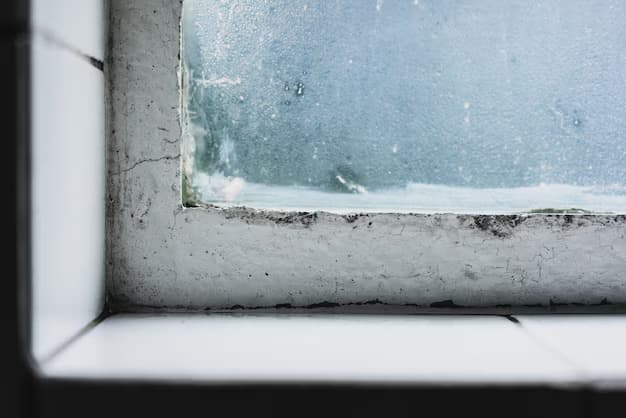Hard water stains on windows can be incredibly frustrating. These stubborn mineral deposits, often caused by water with high levels of calcium and magnesium, can leave unsightly marks that cloud the clarity of your glass.
Whether it’s from sprinklers, rain, or simply washing with hard water, these stains can seem impossible to remove. However, with the right techniques and products, you can restore the sparkle to your windows. Here, we will guide you through the most effective ways to get hard water stains off windows, using household items as well as commercial cleaners.
What Are Hard Water Stains?
Hard water stains appear as cloudy, white spots or streaks on glass surfaces. They are caused by the evaporation of water containing minerals like calcium, magnesium, and sometimes iron.
When water droplets dry on your windows, these minerals remain, leaving a residue behind. Over time, this residue can build up, creating thicker and more stubborn stains that are difficult to remove without specialized methods.
The longer hard water stains remain on your windows, the harder they become to remove. Over time, these mineral deposits can etch into the glass, causing permanent damage.
This not only affects the appearance of your windows but also reduces the amount of natural light entering your home. Addressing hard water stains promptly ensures that your windows stay clean and clear, preserving both their functionality and aesthetic appeal.
How to Remove Hard Water Stains from Windows
Hard water spots can be a nuisance, but with the right approach, you can easily remove them from your windows. Here are a few effective methods:
Use Vinegar
One of the most effective and eco-friendly solutions for removing hard water stains is white vinegar. Vinegar’s acidity helps break down mineral deposits, making them easier to wipe away. Here’s how to use it:
- Mix Vinegar and Water: In a spray bottle, combine equal parts white vinegar and water. For tougher stains, you can use pure vinegar without diluting it.
- Spray the Solution: Generously spray the vinegar solution onto the stained areas of the window. Make sure the stains are fully saturated.
- Let It Sit: Allow the solution to sit on the glass for 5-10 minutes. This gives the vinegar time to break down the mineral deposits.
- Scrub Gently: Using a soft cloth or sponge, gently scrub the window in a circular motion. Avoid using abrasive materials that can scratch the glass.
- Rinse and Dry: Rinse the window with clean water and dry it with a lint-free cloth or paper towel.
Pro Tip: For stubborn stains, you can add a small amount of baking soda to your vinegar solution to create a mildly abrasive paste. Apply this paste to the stains, let it sit for a few minutes, then scrub and rinse as usual.
Use Lemon Juice
Another natural remedy for hard water stains is lemon juice. Like vinegar, lemon juice contains acid that can dissolve mineral deposits. Additionally, it leaves a fresh, pleasant scent.
- Cut a Lemon: Cut a lemon in half and rub the cut side directly onto the stained areas of the window.
- Let It Work: Allow the lemon juice to sit for a few minutes, giving it time to break down the hard water stains.
- Wipe and Rinse: Use a damp cloth to wipe away the lemon juice, then rinse the window with clean water and dry it thoroughly.
Lemon juice is particularly effective on light stains and can be a good alternative if you don’t have vinegar on hand.
Read Also: How to Clean Outside Windows You Can’t Reach
Using Commercial Hard Water Stain Removers
If natural remedies aren’t enough to remove stubborn hard water stains, you may need to turn to a commercial cleaner. There are many products specifically designed to tackle hard water stains on glass. These products contain stronger acids or chemical compounds that can dissolve tough mineral buildup.
- Choose the Right Product: Look for a cleaner that is specifically labeled for hard water stains on glass surfaces.
- Follow the Instructions: Each product will come with specific directions. Generally, you’ll apply the cleaner to the stained area and let it sit for a few minutes.
- Scrub and Rinse: After allowing the cleaner to sit, use a non-abrasive sponge or cloth to scrub the window. Rinse the glass with water and dry it with a clean towel.
Always use caution when handling chemical cleaners. Wear gloves and ensure the area is well-ventilated.
Preventing Hard Water Stains on Windows
Once you’ve successfully removed the hard water stains from your windows, it’s important to take steps to prevent them from returning. Here are some tips to help you water spots on windows won’t come off:
- Squeegee After Cleaning: After washing your windows, use a squeegee to remove any remaining water. This prevents water droplets from drying and leaving mineral deposits behind.
- Use a Water Repellent: Apply a glass water repellent to your windows. These products create a protective barrier that helps water bead up and roll off the glass, reducing the likelihood of hard water stains.
- Install a Water Softener: If hard water is a recurring issue in your home, consider installing a water softening system. This will reduce the amount of minerals in your water, helping to prevent stains on both your windows and other surfaces.
- Adjust Sprinklers: If your windows are exposed to water from sprinklers, adjust the spray pattern so that water doesn’t hit the glass. Over time, this can significantly reduce the occurrence of hard water stains.
Conclusion
Hard water stains on windows are an unsightly problem, but with the right approach, they can be removed effectively. Whether you opt for natural solutions like vinegar and lemon juice or commercial cleaners, the key is to address the stains promptly and take preventive measures to keep your windows clean in the long run.
